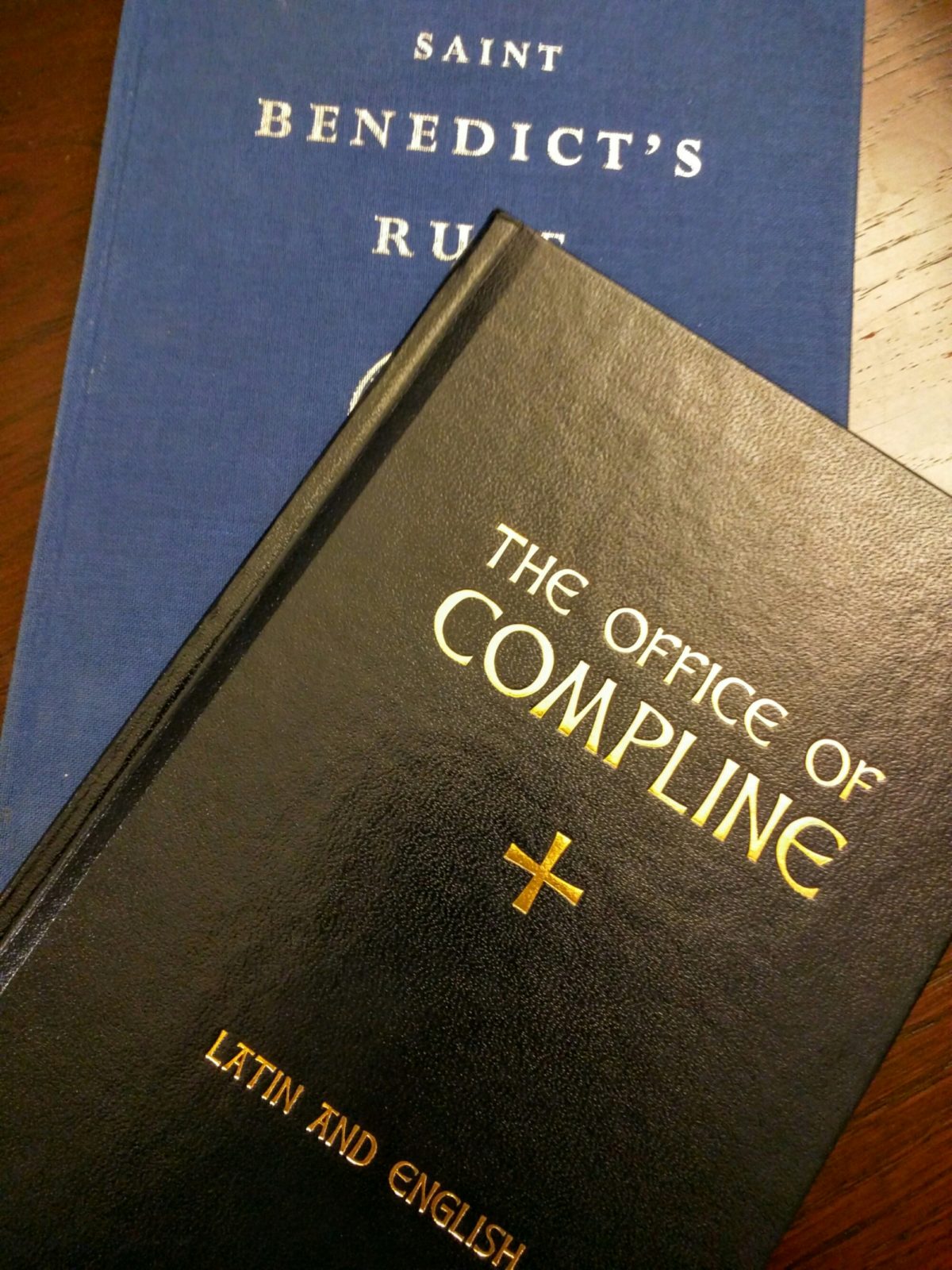The tradition has mostly centered over the centuries in monastic communities, particularly in those that follow the Rule of St. Benedict.
Christian monasticism existed for generations before St. Benedict was born near 480 in Italy, primarily in the Eastern tradition (pre-Schism, of course), though his Rule and the monastery he founded earned him the title of Father of Western Monasticism.
While he was aware of other Rules, that is, guides for monks to follow in living a monastic life, he sought to write down his observations. Mostly expanding from the Rule of the Master, which was a pretty harsh rule written a couple of decades before Benedict’s. In his Rule, Benedict sought to find a happy ground between providing structure and flexibility.
For Benedict, he saw the role of the monk is to do two things: work and pray. Or phrased differently, work and work. He saw the regular cycle of praying the psalms, along with the Mass and other forms of prayer that make up the monk’s life as the Work of God or Opus Dei (the actual Latin translation of the phrase, not the relatively new group within the church that spun up all of those conspiracy theories).
I’ve been attracted to monastic ideas for as long as I’ve been religious for a whole host of reasons; one of the major reasons being the Liturgy of the Hours.
With some variations, the Liturgy of the Hours are regularly timed “offices”, or prayers the are prayed by religious communities and individuals around the world. Typically, now, it consists of Morning Prayer, Evening Prayer, Night Prayer, the “Office of Readings”, and Daytime Prayer (further broken down to Midmorning, Midday, and Midafternoon Prayer). Morning and Evening Prayer are the “hinges” of the day and the ones that are most commonly prayed corporately. Night Prayer, perhaps, has one of the largest followings among individuals as a way to close out the day. The remainder are less common among the general population but still prayed, in accordance with their community’s tradition, by monastic communities.
The idea that around the world, people are dedicating these moments of their day to take a step away, give thanks, reflect on what has gone right or wrong throughout the day, ask themselves if they’re doing good or not is intriguing. Additionally, I like systems and structures. I like Star Trek because it is a whole world I can immerse myself in figuring out the interesting bits of the universe. Liturgy of the Hours—the whole sum of the liturgy of the church at that—is similar for me. I can lose myself in going deeper and deeper into the symbolism, the structure, the rationale for the structure. It’s like a football game where the rules exist within the context of the game that make perfect sense on the field, but from the stands often don’t, and often not at all outside of the football context. (Being able to push back and forth for the first five yards, then being penalized further away doesn’t make sense when walking down the sidewalk nor does many of the rules of the liturgy make sense outside of the doors of a church).
Despite this attraction, I’ve never maintained a regular habit of it. I’d often make the common mistake of trying to do too much—”I’m going to start doing Morning Prayer, Evening Prayer, and Office of Readings every day!” For me, that’s too much.
At the same time and separate from all of this, I’ve struggled with bedtime prayers with the kids. O wants to, asks for it, and so on. I tried a variety of ways—Evening Prayer spoken (since they go to bed pretty early relatively), straight reading from the Bible, spontaneous prayer, and so on. Nothing really seem to stick long-term.

Then, I stumbled upon a copy of Night Prayer, also known by the traditional name, Compline, in Latin and English, set to chant.
For reasons unknown, one night I sang Night Prayer with the girls at bedtime. My singing is pretty awful and they’ve told me to stop singing before on plenty of occasions. For reasons unknown, not only did they not ask me to stop, but it’s their preference now. They scold me if I defer it multiple nights in a row with “it’s already late, so we’ll just say a quick prayer”, which last all of 30 seconds.
We’ve been praying it most nights for six months or so, and the girls know the responses fairly well. Some nights, they’re active participants. Some nights, they fall asleep to it. It has become a nice ending to the day—a way to sit in quietness, be thankful for a day that is done, be hopeful for tomorrow, express our fears and joys—as we always have an open floor near the end of “what do you want to pray for”.
The liturgy of the Church is seen as a communal endeavor. While possible to do by yourself, you’re never doing it alone and, frankly, shouldn’t do it by yourself either. It is best as part of a community.
Without planning for it and without really trying, my own little domestic church has become just a tiny bit monastic.

Leave a Reply